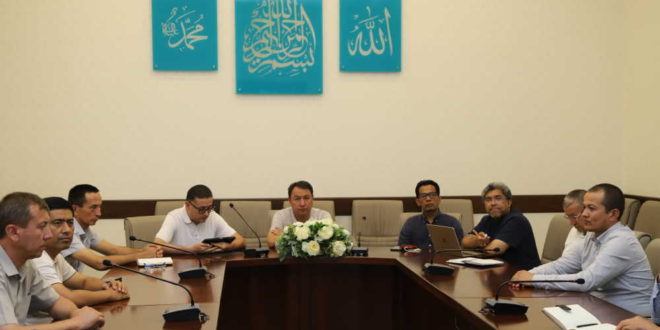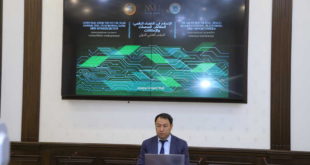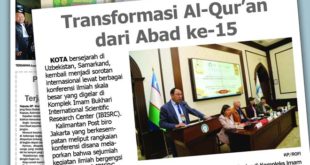At present, the recipients of the Imam al-Bukhari International Fellowship Program undertaking their research practicum at the Center — Professor Shukran ibn Abdurrahman of the International Islamic University Malaysia and Lecturer Damanhuri Armadi of Raden Intan State Islamic University, Indonesia — conducted a scholarly presentation of their ongoing research.
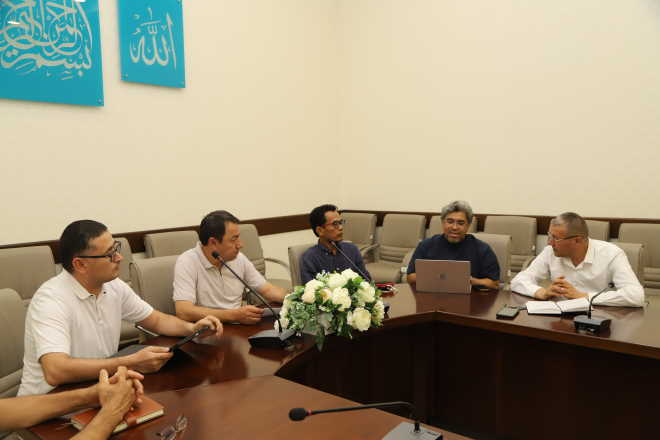
The Malaysian scholar commenced by presenting his research on the foundations of work ethics and the cultivation of a morally mature workforce, grounded in the Sunnah of the Prophet Muhammad (peace and blessings be upon him). He emphasized that examining work ethics from an Islamic perspective is of great relevance to contemporary professional practices. Throughout his lifetime, the Prophet exemplified such noble human values as sincerity, justice, responsibility, and the pursuit of excellence. The guidance found in his Hadith as well as the instructive lessons drawn from his biography continue to serve as a vital source for nurturing the workforce in both moral and ethical dimensions today.
Approaching the concept of labor from the perspective of Islamic philosophy requires unveiling its spiritual and social dimensions. In his remarks, the Professor articulated this view as follows: ‘Work, when performed not solely for material gain but with a sense of spiritual and social responsibility, is transformed into an act of worship.
Another significant aspect of the research lies in its reliance on the historical manuscripts and scholarly sources preserved at the Center, with the aim of substantiating work ethics both theoretically and practically. As a result, it is envisaged that a specialized conceptual framework applicable to contemporary workplace settings will be developed.
It was further emphasized that this study creates the opportunity to formulate practical recommendations for civil servants, entrepreneurs, and education professionals on cultivating a purposeful and effective workforce grounded in spiritual values.
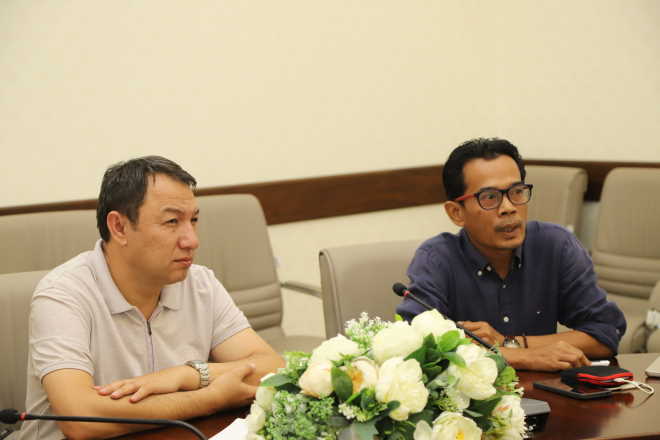
Damanhuri Armadi delivered a lecture entitled ‘Liberating Islamic Studies from Intellectual Dependence and Restoring Scholarly Autonomy.’ He argued that contemporary Islamic studies often exhibit an excessive reliance on Western theoretical paradigms, which in turn impedes the full expression of the intellectual heritage intrinsic to Islam.
The researcher characterized this phenomenon as ‘epistemic colonialism’—a latent form of dependency in the realm of knowledge and thought—and illustrated his point with the following analogy: ‘If colonialism once appropriated lands, contemporary academic imperialism now seizes knowledge and intangible wealth.’
In his presentation, Armadi analyzed the perspectives of the Moroccan philosopher Taha Abdurrahman and the Indonesian scholar Muhammad Amin Abdullah. Both thinkers maintain that Islamic scholarship should not remain confined solely to traditional sources or Western theories; rather, it ought to evolve through an integrative and dialogical approach.
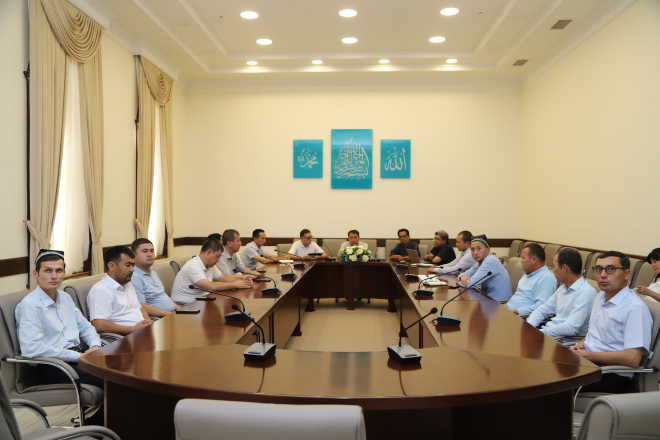
In conclusion, it was underscored that the restoration of the Islamic scholarly heritage, the strengthening of interdisciplinary linkages, and the safeguarding of academic independence constitute pressing tasks for the present time.
The event proceeded with an engaging session of questions, answers, and open discussion.
Press service
 Imom Buxoriy xalqaro ilmiy-tadqiqot markazi bukhari.uz
Imom Buxoriy xalqaro ilmiy-tadqiqot markazi bukhari.uz







